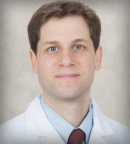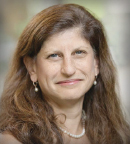Although overall cancer cases are declining, they are on the rise in older adolescents and young adults (AYAs). Memorial Sloan Kettering Cancer Center (MSK) recently announced the establishment of the Lisa and Scott Stuart Center for Adolescent and Young Adult Cancers (the Stuart Center), expanding MSK’s efforts to address the specific, and often unmet, needs of this patient population. The Stuart Center will unite experts across pediatric and adult specialties to revolutionize cancer treatment for this age group.
Unique Challenges for AYAs With Cancer
The survival rate for children with cancer has improved greatly in the past 3 decades; but for AYAs, there hasn’t been as much progress. This vulnerable population faces a whole host of unique challenges, including delayed diagnoses and underrepresentation in clinical trials, which could lead to worse outcomes. When AYAs are diagnosed with cancer, they can feel lost—too old for pediatrics but decades younger than most patients with cancer. Teens and young adults often do not have the right kind of support—beyond their families—to get them through the gauntlet of chemotherapy, surgery, and radiation.

William Tap, MD

Julia Glade Bender, MD
A Personal Motivation
This center is made possible through the generosity of Scott Stuart, Chair of MSK’s Boards of Trustees and Governing Trustees, and his wife, Lisa. The Stuart family experienced firsthand what a cancer diagnosis means to teenagers—and their familes—when their daughter underwent grueling but successful treatment at MSK for non-Hodgkin lymphoma after being diagnosed at age 12. Nearly 20 years later, she has fulfilled her childhood dream of becoming a doctor, graduating from Harvard Medical School, and is now pursuing a career in oncology.
The Stuart Center will be led by William Tap, MD, Chief of the Sarcoma Medical Oncology Service, and Julia Glade Bender, MD, Vice Chair for Pediatric Clinical Research. Services tailored for this specific population will include expanded access to clinical trials for adolescents and young adults, family planning and fertility specialists, personalized medicine, and the use of apps and social media.

